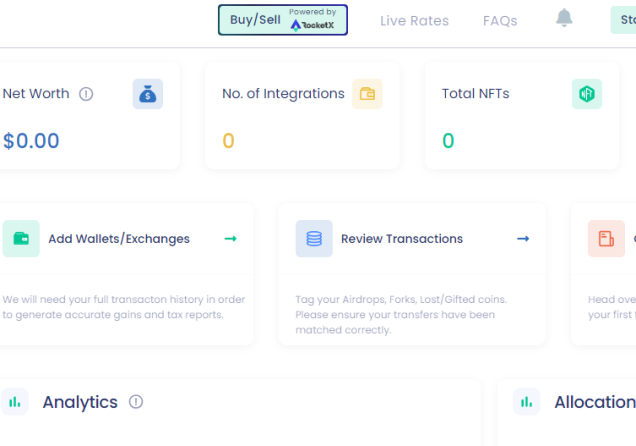Got a Crypto Tax Letter from the IRS? Here’s What to Do!
You may have been sent either letter 6173 or 6174. These indicate that the IRS is simply checking that cryptocurrency traders are not skipping taxes. As of 2014, the IRS began classifying crypto as property; therefore, capital gains apply to crypto. So, whenever you trade, use or sell your cryptocurrency, a capital gains taxable action occurs. If you have received letter 6173 however, it means you have failed to report your earnings. If you have received letter 6174, then the IRS is simply informing you that they are aware of your crypto investments. Receiving 6174 also means that they believe you haven't been entirely honest when filing your taxes.
What Are Letters 6173 and 6174 - And What Should I Do?
The action you take depends on which letter you’ve received. If you’ve got letter 6173, you need to respond as soon as possible, as you could face an audit if you ignore it. You must carefully read the letter and take note of your 'respond by' date. It would be wise to contact a tax professional for further assistance.
Letter 6174, on the other hand, does not require such, or particularly any, action. You only need to reply to this letter if you have not met your crypto-tax filing obligations or have possibly failed to file taxes correctly in the recent past. It is also important to contact a professional if you need to amend your filings. Getting this letter doesn't necessarily mean you have done anything wrong or need to respond. You might receive it even if you have done everything right. The letter is merely intended to increase correct filing and payment of taxes among crypto investors.
 Filing the Correct Tax Forms
Filing the Correct Tax Forms
There are a number of forms you need to file. These are the basic forms required, although bear in mind there might be additional ones.
- Sales and other dispositions of capital assets (form 8949) - This form is for you to list every single crypto trade you have performed including buying, selling, using as payment, sending to another person and any other related activities.
- Capital Gains and Losses (Schedule D) - This is the total of your asset gains and should include all your assets, including your cryptocurrencies.
- Individual income tax return (Form 1040) - This form contains all your income including those earnings filed under Schedule D. Any income resulting from crypto actions are filed in the 'other income' section of the form. Therefore, any income from the airdrops, mining or payments should be here.
- Profit or Loss from Business (Schedule C) - All expenses from self-employment or mining-related earnings are filed with this form.
- Schedule E - You file supplement incomes with this form. If you have received any form of passive income such as royalties, real estate returns from rent, etc. in the form of crypto, it must be filed here.
Lost Crypto
If you lost or had any of your crypto assets stolen, you need to fill out Casualty and Theft (Form 4684), which is meant to indicate that you have some crypto unaccounted for. This form should be filed along with all the other forms mentioned above.Underpaid Taxes
This form is for people who have underpaid their capital gain quarterly taxes. If that includes you, you will need to file Underpayment of Estimated Tax by Individuals, Estates, and Trusts (Form 2210).Foreign Exchange
FinCEN form 114 is for you if you have held $10,000 or more in a non-US-based foreign exchange. Also, if you held over $75,000 dollars during the tax year or over $50,000 on the last day of the tax year, you must file Form 8398.These forms will require you to disclose the number of foreign exchange transactions you have made and the maximum value of your total foreign exchange assets during the tax year.Final Thoughts
Letters 6173 and 6174 shouldn't scare you. If you receive them, all you need to do is respond appropriately. Letter 6174, as stated before, does not typically require a response. 6173, on the other hand, requires appropriate action. If you have not received any of these letters, and you have crypto holdings, you should make sure your taxes are in order. You may also want to read up on a crypto tax guide to ensure you are familiar with how various crypto transactions like forks, airdrops are taxed. These letters are only meant to help investors understand their reporting obligations - remember that. Hopefully, this article has helped you out!Regulated Brokers
The table below contains links to 3rd party websites of our top partners from whom we receive compensation at no additional cost to you.













